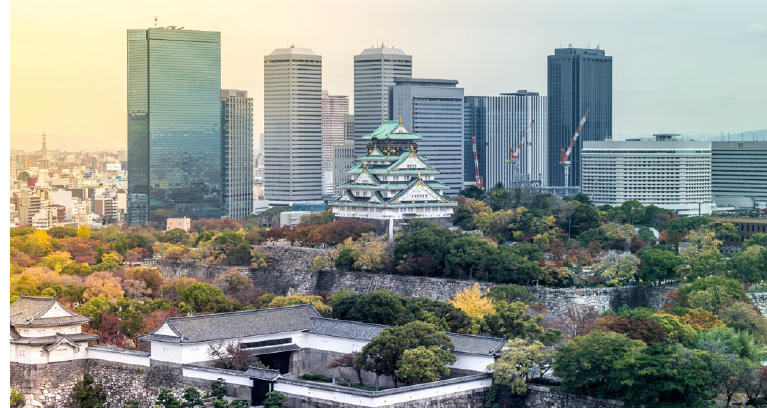Prospects for the Osaka Summit
John Kirton, director of the G20 Research Group, relates the leading themes, focus areas and urgent global challenges to be addressed at the Osaka Summit
The 14th G20 summit, taking place in Osaka, Japan, on 28–29 June 2019, launches the second decade of G20 summitry since the first began in Washington DC in 2008. It is the first G20 summit hosted by Japan, the world’s third most economically powerful country. It brings the G20 back to an Asia emerging as the centre of the global economy, following its successful summits in China in 2016, Australia in 2014 and Korea in 2010. It takes place only seven months after the G20 summit in Argentina in late 2018.
The Osaka Summit confronts the critical challenges of escalating trade and investment disputes, the climate crisis, rapid digitalisation, ageing populations, harms to human health, slowing and unbalanced economic growth, financial fragilities, and geopolitical tensions in Asia and elsewhere. It comes with concerns about the ability of the major multilateral organisations and order from the 1940s to cope, without the help of the systemically significant, intensely interconnected countries now assembled in the G20.
The Osaka Summit is hosted by Japanese prime minister Shinzo Abe, a veteran of six G20 summits and host of the G7’s successful Ise-Shima Summit in 2016. The other veterans are Germany’s Angela Merkel, China’s Xi Jinping, Canada’s Justin Trudeau, India’s Narendra Modi, Turkey’s Recep Tayyip Erdoğan, Argentina’s Mauricio Macri and Saudi Arabia’s Crown Prince Mohammad Bin Salman, who will host in 2020. Jean-Claude Juncker, president of the European Commission, and Donald Tusk, president of the European Council, are veterans, too. The newer leaders are Korea’s Moon Jae-in, the United Kingdom’s Theresa May, France’s Emmanuel Macron, South Africa’s Cyril Ramaphosa, Indonesia’s Joko Widodo, the United States’ Donald Trump, Italy’s Giuseppe Conte and Australia’s Scott Morrison. The newcomers are Brazil’s Jair Bolsonaro and Mexico’s Andrés Manuel López Obrador, should he decide to come.
These leaders will mobilise the work of the G20’s meetings of ministers responsible for agriculture on 11–12 May; finance and central bank governors on 8–9 June; trade and the digital economy on 8–9 June; energy transitions and the global environment for sustainable growth on 15–16 June; and finance and health together on the sidelines of the Osaka Summit itself. They will guide those for labour and employment on 1–2 September, health on 19–20 October, tourism on 25–26 October, and foreign affairs on 22–23 November.
At Osaka, leaders will focus on Japan’s theme of promoting a free, open, inclusive and sustainable ‘human-centred future society’. Their priorities are free trade and innovation as engines for shared growth that reduces disparities, global standards for ‘data free flow with trust’, development through quality infrastructure and the Sustainable Development Goals, international health, climate change, ocean marine litter, institutions for the digital economy, and an ageing society that affects financial and social policies and inclusion.
Other issues are safeguards for shared growth regarding debt sustainability and transparency in low-income countries, global imbalances and market fragmentation in financial regulation and supervision. Technological innovation embraces international tax, financial innovation (including crypto-assets) and development implications. The standard issues of money laundering and terrorist and proliferation finance also appear.
With this broad, demanding and innovative agenda, the leaders should produce a summit of substantial success. They will likely contain trade tensions, affirm that trade boosts growth and prosperity and should be rules-based, and support Prime Minister Abe’s signature ‘Osaka Track’ to guide trade into the digital age. Climate change control and clean oceans through marine litter clean-up and waste management could be important achievements, with different members committing to their preferred approach on climate, to offset the escalating environmental shocks that highlight the vulnerability of all.
Leaders will launch the G20’s innovative agenda on ageing populations and foster economic sustainability, labour force productivity and social well-being. They will advance human health and the broader SDGs, supporting universal health coverage as a long-term development ideal, healthy nutrition, ongoing work on anti-microbial resistance, malaria, tuberculosis and polio, and perhaps the International Health Regulations and the World Health Organization at the core. Also in store are advances on gender equality in the workplace, entrepreneurship and business leadership, and perhaps the broader social ecosystem enabling women to prosper.
The G20’s strong success on tax will strengthen, with the complexities of digital taxation added to its work. Ambitious principles for quality infrastructure will appear. Initiatives on anti-corruption will also arrive, and perhaps extend to broader economic crimes. Serious action against terrorism could again arise, as the growing attacks in Asia from global networks kill ever more citizens of G20 members and beyond.












